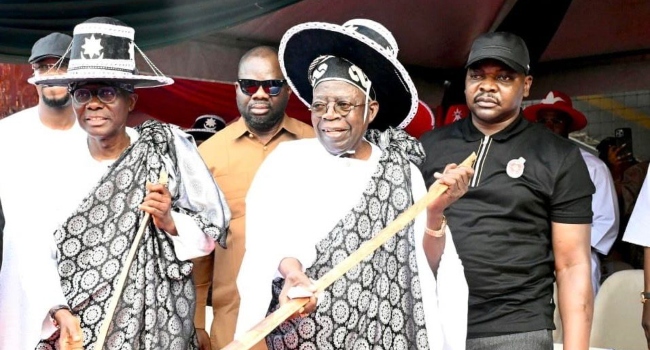Thousands gather for the 2025 Ilorin Emirate Durbar Festival as cultural tourism, unity and heritage take centre stage in the ancient city, now globally recognised by UNESCO
Ilorin Durbar Festival once again transformed the Kwara State capital into a vibrant hub of cultural celebration as thousands of dignitaries, tourists, traditional rulers, and well-wishers gathered at the newly designated Kwara Baseball Park in Adewole, Ilorin, for the 2025 edition of the historic event.
The festival, which followed the Eid al-Adha celebrations, featured a grand procession of ornately adorned horsemen led by the Emir of Ilorin, Alhaji Ibrahim Sulu-Gambari.
Accompanied by drummers, praise singers, and ceremonial gunfire, the Emir’s retinue travelled the historic route known as “Jahi,” drawing applause from thousands who lined the streets.
Rooted in Islamic and martial traditions dating back to 1830, the Ilorin Durbar Festival continues to symbolise unity and identity. This year’s theme, Unity in Diversity: Ilorin’s Timeless Gift, spotlighted the emirate’s multi-ethnic heritage, including Fulani, Yoruba, Kanuri, Nupe, Gobir, and Baruba cultural expressions.
Participants and tourists from over 17 countries, including the UK, Morocco, Egypt, the United States, and Benin Republic, were in attendance.
The venue’s relocation from the Emir’s palace to the spacious Kwara Baseball Park was aimed at accommodating the increasing number of guests, supported by the construction of two new 1,500-capacity pavilions.
The Chairman of the Ilorin Emirate Durbar Committee, Engr. Yahaya Alapansanpa, described the event as a deeply spiritual and cultural celebration. “This festival goes beyond pageantry. It is a celebration of harmony, heritage, and Islamic values,” he said.
He thanked Governor AbdulRahman AbdulRazaq, the Sarduana of Ilorin, for consistently supporting the festival since 2019, while urging for further government investment to boost tourism and global visibility.
In December 2024, UNESCO officially inscribed the Ilorin Grand Durbar, alongside other Nigerian Durbar festivals, on its list of Intangible Cultural Heritage. Stakeholders hailed this as a major milestone, reinforcing the festival’s global stature.
Tourism stakeholders, including the President of the Nigerian Association of Tour Operators (NATOP), Bolaji Mustafa, confirmed a surge in domestic and international interest.
“This festival is drawing tourists and travel operators from across the country. It’s a strong platform to promote Nigeria’s cultural richness,” he noted.
Hotels, restaurants, and local businesses also reported significant boosts in patronage throughout the festival week, confirming the economic ripple effect of the Durbar.
Top dignitaries present included Dr Alimi AbdulRazaq (Mutawalli of Ilorin), Engineer Lanre Sagaya, Alhaji Abdulmuunini Abdulmalik, Dr Kamoru Yusuf, and Hajia Faridah Sagaya.
Also in attendance were federal and state officials, including Mr Obi Asika (Director-General, National Council for Arts and Culture), Dr Afeez Abolore (Commissioner for Agriculture), and Aare Abisoye Fagade (Director-General, National Institute for Hospitality and Tourism).
Social media played a critical role in this year’s edition, with the hashtag #DurbarIsIlorin trending on X (formerly Twitter), TikTok, and Instagram, as creators shared vibrant clips of the Emir’s ride, cultural performances, and behind-the-scenes moments.
Tourists like Amina Salihu, who travelled from Kaduna, praised the experience: “The Durbar is more than just horses, it is about identity and community.”
Speaking at the close of the event, the Emir of Ilorin expressed deep appreciation to the organising committee and the people of the Emirate.
“I thank Almighty Allah for the success of this year’s Durbar and pray for continued peace and development in Ilorin Emirate and Nigeria as a whole.”
Special Adviser and Counsellor to the Governor, Alhaji Saadu Salau, reaffirmed the administration’s resolve to uplift the region’s cultural wealth: “We are committed to preserving and promoting the heritage of our people.”

 Business3 years ago
Business3 years ago
 Events3 years ago
Events3 years ago
 Culture3 years ago
Culture3 years ago
 Culture3 years ago
Culture3 years ago
 Events3 years ago
Events3 years ago
 Events1 year ago
Events1 year ago
 Events3 years ago
Events3 years ago
 Paranormal3 years ago
Paranormal3 years ago


































